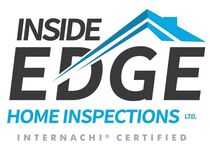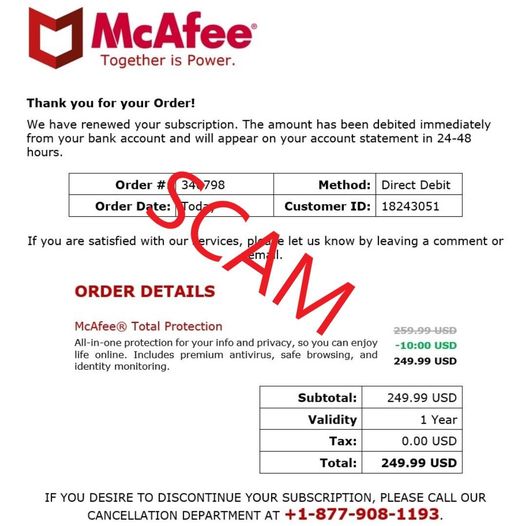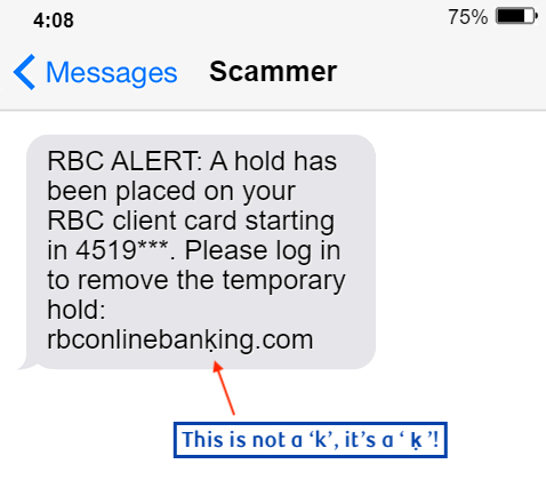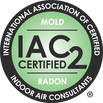Mike's Home Inspector BlogMichael Burfitt |
|
The home inspection industry is unique in that a) almost all our clients don’t physically meet us until the day of an inspection and b) a successful job usually means that I will never hear from clients again, so often many new clients are rightfully leery of trusting possibly the biggest life decision to someone they have never met in person. This isn’t helped by the fact our industry is completely unregulated and as a new homeowner, it is difficult to tell a skilled inspector from a pretender. One of the ways I overcome this limitation is from this very blog, where I can share my extensive knowledge and experience with inspecting building systems. Doing most of my business online means I come across many scam attempts. Luckily, I can quickly identify and avoid them, but the sad fact is these cybercriminals are organized, highly skilled and have no problem with draining every penny from your bank account. There is a misconception that most scams are like the Nigerian Prince or Lottery scam, where an unsolicited email promises a ludicrously large amount of money in exchange for a small fee. Of course, the promised money never appears, and most people can easily see the absurdity of paying money to get money. Unfortunately, scammers are usually far more subtle than this. Here are a few examples of common scams. Company Imposter Scams This can take many forms: email, text or even a phone call. The scammer pretends to be associated with a legitimate and well-known organization, such as Amazon, Apple or the local Police. Here is an example of a scam message we received. Looks very legitimate until you take a closer look. There are a number of ways to tell that this email is a scam: 1) There is no personal or company information listed. In this example, the email doesn't say "dear Inside Edge..." 2) Have you ever known a large, multinational company to highlight how to quickly get a refund and have a "cancellation department"? 3)Legitimate companies in North America do not put "+1" as a phone prefix and this is a sure sign this scammer is based outside of Canada and the United States. That phone number is not listed anywhere online: strange for such a large organization, isn't it? 4) Speaking of the US, this email is in United States dollars while we are a Canada based business and clearly use a Canadian website. 5)If you check the actual site for this company, they will show you how to check that it's a genuine email from them. Spoiler: this one doesn't meet their criteria. I can confidently say that if that phone number still works, I would be instructed either provide a credit card or to give remote access to our bank account to "refund" the money. The scammers would then proceed to attempt to drain the account or rack up a credit card bill. Scams usually use a fear-based approach to get you to act immediately before thinking rationally: usually by threatening deletion of accounts, arrest or hacking and sharing your personal details. They will usually insist on you paying them with Gift Cards or Cryptocurrency: the reason for this is twofold: 1)They are not traceable and can easily be sold on the black market. 2)Gift Cards and Cryptocurrency (such as Bitcoin) are easy to transfer internationally without providing any ID or being questioned by a bank or other financial institution. Here is another scam message. Let's pretend for a moment I do have an account with this particular bank. I pull out my wallet and *gasp* that is my card number! The important thing to note is that (almost) ALL cards from that bank start with those four numbers! I can also tell you that if you bank with CIBC your card starts with 4506, TD it starts with 4724 and Scotiabank its 4536 not because I am psychic or because I have a post-secondary degree concentrated in banking theory (this is actually true!) but because this is easily obtained information. If there is any doubt, be sure to reach out to your bank using their published contact information (never click on that link in the text).
Recovery Scams If you are the unfortunate victim of a scam, it is a near guarantee that you will get a flood of "helpful" people who are looking to get "justice" for you and get at least some of your money back. Unfortunately, these are also scammers. They usually use bot accounts triggered to respond to keywords: I did a recent social media post and almost instantly got 25 responses of people looking to "help". Of course, they all had sketchy links. The only thing you will get from these "helpful" messages is a further drop in your bank account balance. Romance Scams I remember back in my single days doing online dating and the many frustrations that went with it. In addition to the usual problems, I was always on alert for romance scammers. I did run into one who claimed to be a travel nurse currently in Africa with the UN and returning home soon. The pictures were not of a supermodel nor was the message I was sent an obvious scam: it was well written and did not ask for money. I thought there was a chance this could be a real person, but I made sure to proceed with caution. I carefully checked the profile, and I did notice some words and phrases that people raised in North America rarely use. My suspicions proved correct when the scammer made an excuse that they would prefer to switch to an encrypted message service. Once I refused that was the end of it. If I had to continue, the scammer likely would have provided a sob story about how they needed a small amount of money (perhaps $50). This would have escalated to hundreds and perhaps thousands at a time until I had no money left to give. Sadly, these scammers are not only frequently successful, in some cases they have convinced victims to not trust family and friends. They are getting more skilled at creating fake identities to the point that...... Deepfake Scams This is probably the scariest scam that is developing. It is now possible to create a fake video that is almost indistinguishable from a real video. They usually use famous celebrities but it's only a matter of time before fake videos of ordinary people like yours truly are created. Be aware of things that seem out of character: if you ever see a video of me claiming I only take gift cards as payment that's a clear sign it's not me! Tune in next week where we look at some tools you can use to fight back against scammers.  Our goal is for as many of these to remain in your pocket as possible. Our goal is for as many of these to remain in your pocket as possible. When the topic of home inspections arises, most people immediately associate it with real estate transactions. While this connection holds true in many cases, there are instances where I have been called to evaluate issues stemming from sub-standard workmanship. It is worth noting that based on conversations with homeowners and my own observations, the work done by inexpensive contractors can often turn out to be the most costly in the long run. While it is true that many of these low-cost contractors lack the necessary skills, it's important to highlight that not all of them are dishonest or scam artists. However, over the years, there has been an unfortunate increase in scam activity, with scammers masquerading as contractors. The range of scams is as diverse as the individuals perpetrating them, but let's explore the basics of how one typically operates. Outline of a Home Improvement Scam Typically, these scams commence with unsolicited contact—be it through a phone call, text message, or even a knock on the door. Scammers may present various scenarios: claiming to have leftover materials from a neighborhood job, pointing out apparent major issues like a damaged chimney, or offering an irresistible deal contingent upon upfront payment. The scammers will insist on cash payments and downplay the need for a contract. If met with resistance, they resort to high-pressure sales tactics, often demanding an immediate decision. Eventually, they either disappear with the cash, never to be seen again, or perform subpar work and promptly vanish. When they deliver some work instead of outright theft, the situation transforms from a criminal offense to a civil dispute, which means involvement from law enforcement agencies becomes challenging. Avoiding Home Improvement Scams Fortunately, there are numerous ways to minimize the risk of falling victim to such scams. Here are a few effective strategies to consider:
The Value of Trustworthy Professionals Throughout my career, I have worked diligently to establish a reputation based on trust and honesty. Being a knowledgeable and unbiased home inspector is a tremendous responsibility. It's important to recognize that inspection companies offering remarkably low prices are likely cutting corners to maintain their rock-bottom rates. Similarly, reputable contractors, who may not come cheap, ultimately save you substantial amounts of money in the long term. |
Archives
July 2024
Categories
All
|
|
Inside Edge Home Inspections Ltd.
Halifax, NS 902-209-9921 [email protected] Proudly Serving the HRM & Central Nova Scotia |



 RSS Feed
RSS Feed

